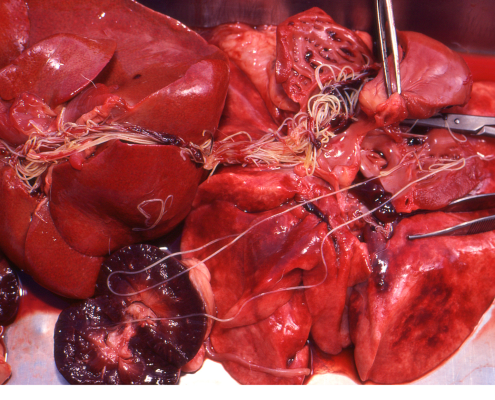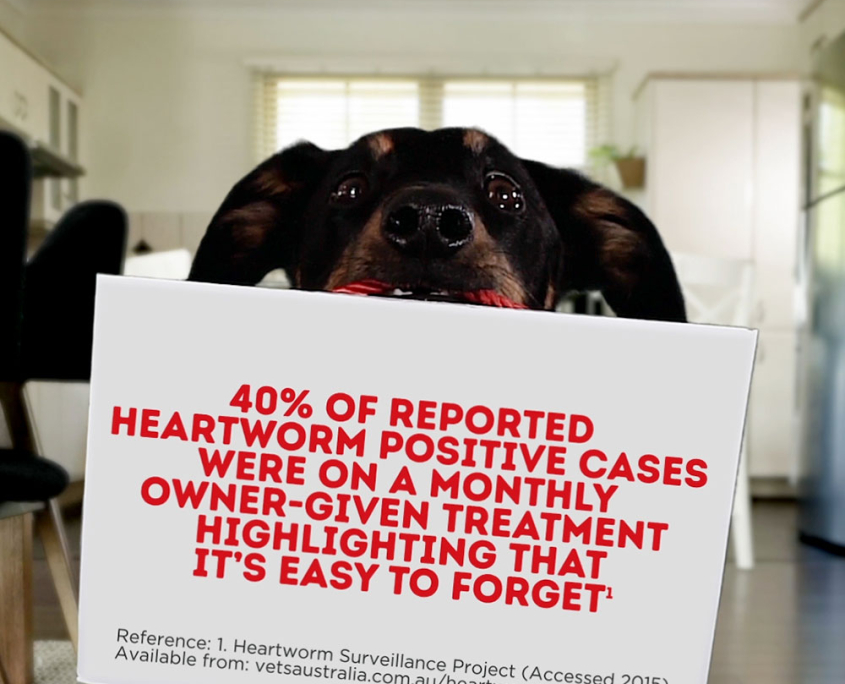Heartworm Disease: Understanding and Preventing
What is Heartworm disease?
Heartworm disease is caused by a worm that lives in the heart, lungs, and associated blood vessels of affected pets, causing severe lung disease, heart failure, and damage to other organs in the body.
Dogs…
The dog is a natural host for heartworms, which means that heartworms that live inside the dog mature into adults, mate, and produce offspring. Heartworm infection causes lasting damage to the heart, lungs, and arteries, and can affect the dog’s health and quality of life long after the parasites are gone.
Cats…
Heartworm disease in cats is very different from heartworm disease in dogs. The cat is an atypical host for heartworms, and most worms in cats do not survive to the adult stage. Cats with adult heartworms typically have just one to three worms, and many cats affected by heartworms have no adult worms. While this means heartworm disease often goes undiagnosed in cats, it’s important to understand that even immature worms cause real damage in the form of a condition known as heartworm associated respiratory disease (HARD). Moreover, the medication used to treat heartworm infections in dogs cannot be used in cats, so prevention is the only means of protecting cats from the effects of heartworm disease.

How do your pets get heartworm?
Mosquitos play an important role in the spread of heartworm. Adult female heartworms living in an infected dog will produce baby worms called microfilaria that circulate in the bloodstream. When a mosquito bites a dog infected with heartworm it picks up these baby worms which then develop into a mature “infective” stage. Then when the infected mosquito bites another dog or cat the infective larvae enter the new host.
Signs of heartworm disease
Heartworm disease is a very slowly progressing condition in the early stages, so many pets will show very few or no symptoms. In the later stages it can cause severe lung and heart disease and may even be fatal. Active dogs, dogs heavily infected with heartworms, or those with other health conditions often show pronounced clinical signs.
Signs of disease may include a mild cough, reluctance to exercise, tiredness after minimal exercise, poor appetite, and weight loss. More severe heartworm infections can cause dogs to develop heart failure which may result in them developing a swollen abdomen. Signs in cats are often very subtle or very dramatic and can vary from coughing, periodic vomiting, weight loss to asthma-like attacks.
How is heartworm diagnosed?
Heartworm disease in dogs is very tricky to diagnose in early infections. We have blood tests that can be run in-house but they only detect adult female heartworm so often a diagnosis is only made 6-9 months post-infection. Detection of heartworms in cats is even harder to detect than in dogs because they are less likely than dogs to have adult heartworms. This means that diligent prevention is very important in protecting your pet from heartworm.

How do you protect your pet from heartworm disease?
Unlike flea and tick and intestinal worming treatments, heartworm prevention only prevents infection and doesn’t treat for current infections. This makes it very important to keep up to date with heartworm preventatives as any lapse in prevention may lead to an infection that won’t be picked up on for at least 6 months. There are many options for preventatives coming in the forms of oral or topical products as well as 12-month long injections in dogs.
Written by Dr Adam Cronin




